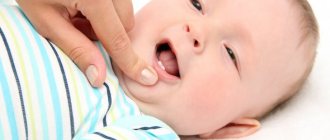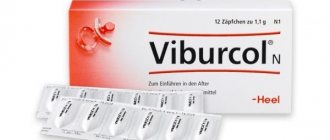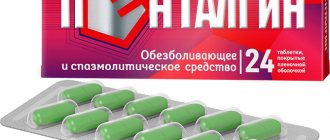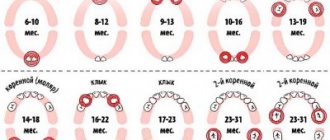Nurofen instructions for use, which contains an exhaustive list of recommendations for its safe use, is used as a remedy that has the ability to normalize increased body temperature, as well as relieve a person from various types of pain. This medication is classified as a non-steroidal anti-inflammatory drug, so it has the ability to reduce the size of inflammation.
Composition and mechanism of action of the drug
The drug, under the trade name Nurofen, contains 200 mg of ibuprofen. Tablets and capsules may contain additional components, for example, silicon dioxide (the medicine may contain 2 mg silicon acid), stearic acids.
The drug belongs to the category of non-steroidal, it has the ability to reduce fever and eliminate any pain. The active ingredient of this medication, penetrating into the blood serum, prevents the gluing of cardiac glycosides in the plasma.
The peculiarity of the action of ibuprofen is that after penetration into the digestive system, this substance is released and does not act throughout the entire body, but only in the affected areas. Ibuprofen prevents the production of prostaglandins, substances that are responsible for the development of inflammation and the occurrence of severe pain.
Nurofen is allowed to be used not only for the relief of pain syndromes of varying degrees of intensity, but also for complex therapy of acute viral infections (to reduce high body temperature).
Can children be given Nurofen?
The drug Nurofen is the choice of many specialists and already experienced parents. The fact is that it is multifunctional - it helps relieve pain, reduce fever, and also improve the general physical condition of the child during teething and other unpleasant conditions. The drug can be used for children from the third month of life.
The main component of Nurofen is ibuprofen, the effect of which is manifested within the first 30 minutes. after the reception. The substance is in no way inferior in its effectiveness in pain relief and lowering temperature to the common paracetamol. The effect of the medicine is also quite long - up to 8 hours, but largely depends on the individual characteristics of a particular baby.
The use of Nurofen is appropriate for:
- feverish conditions;
- pain syndrome of any etiology (including headache, toothache, sensations when teeth appear);
- infectious and inflammatory diseases.
Since the indications for Nurofen include pain, including that caused by the appearance of teeth, the drug can be used as an analgesic, even if there is no increase in body temperature. The main rule is to adhere to dosages appropriate to the age group and duration of use.
Release form
The release form and packaging of the medicine may vary. The following medications can be found on pharmacy shelves:
- tablets, capsules, suggesting oral administration. Usually they are packed in 10 pieces on one blister; the number of such blisters in a cardboard pack may vary from one to two or three;
- Nurofen Plus deserves special attention - these are capsules with a liquid center containing 2 times more active substance than in conventional tablets;
- Nurofen syrup, used in pediatrics: poured into a dark glass bottle, equipped with a dispenser syringe, with which the required volume of medicine is determined;
- gel, used for application to the skin, packaged in aluminum tubes, can have different weights from 30 to 100 grams.
Many people wonder whether Nurofen is an antibiotic or not. Ibuprofen - the main component of this medicine is an anti-inflammatory, non-steroidal drug. It relieves symptoms of viral infection, fever and pain, but does not fight bacterial infections, therefore, it does not have antibacterial functions.
Nurofen is absorbed quite quickly by the walls of the stomach and intestines, almost completely. Already after 45 minutes its concentration in the blood plasma reaches its maximum. When the medicine is taken with food, peak effects may be slower and may take one to two hours.
The drug, having penetrated the blood, appears in the synovial fluid, increasing its plasma concentration.
The medicine is eliminated outside the body through the functioning of the liver and kidneys.
Application experience
Experienced mothers prefer to give their child Nurofen when teeth are growing, mainly at night. This is due to the fact that at night the pain from teething increases many times over, and the child cannot sleep. Judging by the reviews, in most cases one or two doses of minimal dosages per day are enough to keep the baby calm.
Pediatricians often disagree in which cases it is advisable to take Nurofen during teething. Some pediatricians believe that if teething is not accompanied by fever, then there is no need to give Nurofen. Others are of the opinion that taking Nurofen is possible both without fever and in cases where fever accompanies teething.
The last position should be considered more correct. The drug has not only an antipyretic but also an analgesic effect. If a child's teething is not accompanied by fever, but is accompanied by pain, Nurofen will help eliminate the pain, but the temperature will remain constant.
Indications and contraindications
Nurofen, the annotation to which contains an exhaustive list of indications for use, can be purchased at any pharmacy. This medicine is used to relieve pain of various localizations and relieve inflammatory processes.
Indications for use of the drug:
- headache;
- migraine-like pain;
- toothache (occurring during teething, caries or extraction);
- periodic menstrual ailments in women;
- joint and muscle pain that occurs after injury or sprains;
- rheumatism;
- increased body temperature;
- neuralgia of various types;
- back pain (due to radicular osteochondrosis syndrome).
Taking the drug is not indicated for all categories of patients; there is a clear list of conditions in which the use of Nurofen is strictly prohibited.
Contraindications for use:
- ulcerative stomatitis;
- ulcers of the stomach and duodenum;
- chronic peptic ulcer;
- perforation of an ulcer that has occurred previously;
- intolerance to the active substance or aspirin;
- situations of development of acute coronary insufficiency, other severe pathologies of the cardiovascular system;
- insufficient functioning of the liver and kidneys;
- first and last trimesters of pregnancy;
- lactation period;
- polyps in the nasal cavity;
- frequently occurring bronchial obstruction, other problems with the patient’s breathing;
- presence of bronchial asthma;
- children under six years of age (for tablets and capsules);
- stroke and hemorrhagic vasculitis;
- bleeding disorders;
- recent surgery on the aorta or other large blood vessels.
Only after consulting a doctor and under his supervision, the drug is used in the presence of the following conditions:
- pregnancy period from 14 to 28 weeks;
- cardiac ischemia;
- diabetes;
- use of drugs from the group of glucocorticosteroids (prednisolone);
- chronic diseases of the gastrointestinal tract associated with a high tendency to form erosive lesions of the mucous membranes;
- elevated blood pressure;
- decreased serum lipid levels;
- there is minimal suspicion of gastric bleeding.
Existing contraindications
Despite all the benefits of the drug, there are contraindications to its use. Sometimes individual intolerance to the active component by the child’s body may occur.
You should also stop using the drug in cases where there are other concomitant diseases:
- hives;
- rhinitis;
- bronchospasm.
Side effects when using Nurofen can occur in cases where a child suffers from asthma, gastritis, and urticaria. It should not be combined with other antipyretic drugs or drugs that reduce blood clotting. In these cases, complications of an already painful condition can be provoked.
Mode of application
When to take Nurofen before or after meals? To determine the intricacies of treatment with this drug, you need to read the annotation that is attached to each of its dosage forms.
Rules for using Nurofen:
- drink after meals;
- The tablets do not need to be chewed, they are swallowed whole;
- you can drink the drug with water or milk, this will reduce the irritation for the mucous membrane of the gastrointestinal tract;
- the specific amount of the drug is determined individually by a specialist;
- according to the recommendations, to get rid of pain, the tablet is taken once;
- when a decrease in body temperature is required, the drug is allowed to take one capsule of 200 mg, no more than four times a day (an interval of 4 to 6 hours must be maintained between each dose);
- for severe pain, Nurofen is taken one tablet 2 to 4 times a day (the duration of such therapy should not exceed 3-5 days).
Important! Having studied the label of the drug and the instructions for using the tablet, you still should not take the tablets for a long time without first obtaining consultation from a specialist.
Dosage of the drug
How to use Nurofen? Suppositories and syrup are best for teething.
When using the drug, you must adhere to the dosages recommended by the manufacturer. If suppositories are used, then a single dose is one suppository.
- 3…9 months – one suppository three times a day.
- 9…24 months – one suppository four times for a full day (a break between administrations of six hours).
In addition, there are certain recommendations:
- The child can be given medicine three to four times a day, no more;
- the minimum interval between two doses of the drug should be six hours;
- Taking the drug as a pain reliever is allowed no longer than five days; to lower the temperature - three days.
Taking Nurofen cannot be combined with the following medications:
- aspirin (with the exception of a small dose selected for the child by the pediatrician);
- other NSAIDs (increases the risk of developing symptoms of side effects);
- thrombolytics and anticoagulants;
- antihypertensive drugs;
- diuretics (diuretics);
- medications from the group of glucocorticosteroids (high risk of ulcer formation);
- cardiac glycosides;
- antibiotics of the honolon series (there is a risk of developing seizures).
Nurofen for children
For children aged 6 to 12 years, the use of Nurofen tablets is allowed. You can repeat the dose no more than 4 times a day, with an interval of 6 hours.
Children from 6 to 9 years old take 1 tablet of ibuprofen, but not more than three times a day.
For use by children aged 3 months to 6 years, a special sweet syrup is indicated. Nurofen liquid instructions, which are attached, must be taken according to the age and weight of the baby, the annotation contains a table describing the correct dosage regimen.
How to take Nurofen before or after meals? There is no big difference, however, taking the drug on an empty stomach, without eating at the same time, allows the active substance to begin its active work faster. Otherwise, the absorption rate of the active components may be delayed.
Composition of the drug and release forms for adults and children
Nurofen is available in several dosage forms and is indicated for patients of all ages. Its active substance is ibuprofen, available in various dosages. This is an analgesic and antipyretic component, effective for teething in infants.
Children's Nurofen is found in 3 forms:
- Syrup with a light strawberry or orange flavor. Indicated from 3 months to 6 years. The absence of sugar allows it to be given to overweight and diabetic children. In addition to the main component, it contains the antiseptic domiphene bromide, water, citric acid, and a sugar substitute. The effect is achieved 20-30 minutes after taking the medication.
- Tablets – used from 6 years of age. They look like small, flat, white, odorless pills. 1 tablet contains 200 mg of active substance and auxiliary components - silicon dioxide, titanium dioxide, stearic acid, sucrose. If it is difficult for your baby to swallow a whole pill, you can grind it into powder. The drug acts after 30 minutes and relieves pain during the growth of permanent teeth for 6-8 hours.
- Candles – help babies from 3 months to 2 years. They contain ibuprofen (60 mg) and solid fat (auxiliary component). The suppository contains 1 dose, which eliminates the possibility of taking Nurofen in excess. The medicine is quickly absorbed into the blood from the large intestine, so the remedy acts quickly (toothache disappears after 10 minutes).
Nurofen for adults is available in several versions. The drugs have common indications and act equally effectively, but the concentration of the active substance in them is different. This allows you to choose a medicine for each specific case - acute, dull, severe, prolonged pain. The drug for persons over 12 years of age is available in the following forms:
- Tablets, regular or effervescent, soluble. These are potent Nurofen Forte (400 ml), Nurofen Plus with codeine, Nurofen Neo, Ultracap, Active Express.
- Pain relieving gels. The method of their use is only externally.
- Capsules. They act faster than tablets, but have a similar composition.
Nurofen during pregnancy
During the first weeks of pregnancy (before 13-14 weeks), any medications for a pregnant woman are prohibited. Nurofen is no exception; the risks of congenital malformations in the baby are too great.
Experts allow the use of the drug from 14 to 28 weeks, provided that the drug is recommended by a doctor and the risk to the baby is significantly lower than the benefit to the mother.
The last trimester of pregnancy is the time when taking Nurofen is prohibited. The medicine can cause abnormal development of the circulatory system and damage to the baby's kidneys. In addition, this medication increases the risk of postpartum hemorrhage in women.
During lactation, the drug can be used only in extreme cases, after expressing the breast to feed the baby. You can stop breastfeeding for the duration of treatment to avoid the negative impact of the medicine on the baby.
Contraindications
Like any other drug, Nurofen has its contraindications and side effects. In this case, the first is sensitivity to the main active ingredient - ibuprofen, or any other components of the drug.
Also, for dental pain, it is not advisable to give Nurofen if the child has hypersensitivity reactions: bronchospasm, rhinitis, hives, and other consequences that occurred after taking non-steroidal anti-inflammatory drugs.
The medicine is contraindicated in children suffering from diseases of the digestive system, such as ulcers, inflammation of the intestines, or gastrointestinal bleeding. Children with a blood disease or established renal failure are also prohibited from taking this drug.
Dangerous consequences can be caused by taking Nurofen for gastritis, asthma, and hives. Combining it with other antipyretic drugs or drugs that reduce blood clotting is also undesirable. To avoid side effects due to these factors, you should first consult your doctor.
In general, if you follow the dosage and indications for use correctly, Nurofen can become very effective and, importantly, a universal remedy for your baby’s illness. However, do not be lazy to consult your pediatrician before taking it, since some concomitant diseases or methods of therapy may provoke unexpected consequences of this medicine.
Side effects
Nurofen can be taken to relieve pain and normalize body temperature. However, long-term use of it, exceeding three days, can provoke the development of negative reactions from different body systems.
Side effects:
- organs of the digestive tract: pain in the epigastric region, heartburn, nausea, enlarged liver, stool disorders;
- CNS: difficulty falling asleep, insomnia, disturbances in clarity of consciousness, dizziness, agitation;
- heart and blood vessels: increased blood pressure, increased heart rate, arrhythmia and heart failure;
- urinary system: renal dysfunction, tissue swelling, development of renal failure;
- circulatory system: decrease in platelets, leukocytes in the blood serum, anemia associated with iron deficiency;
- sensory organs: the appearance of noise, ear congestion, increased tear secretion, dry eye mucosa, decreased visual acuity or blurred vision, optic neuritis;
- organs of the respiratory system: the appearance of shortness of breath, in the presence of bronchial asthma - increased frequency of coughing attacks, broncho-obstructive reactions;
- skin: rashes, redness, rash accompanied by itching.
It is extremely rare that a severe allergic reaction in the form of anaphylactic shock or Quincke's edema may develop.
Pain during teething
This is a potent ibuprofen-based remedy. It will dry your little one’s tears in just 15-20 minutes, as it is very quickly absorbed through the intestinal walls and produces an analgesic effect that lasts 8 hours. The effect produced by ibuprofen is that it inhibits the synthesis of prostaglandins, and these are substances that are signaling agents of pain and inflammation.
Parents do not necessarily have to wait until their baby’s temperature rises to 38 degrees or higher. Since one of the main effects of the suspension is pain relief, it is possible and even necessary to give Nurofen during teething without fever: why should the baby suffer? The only note: in this case, the dosage should be reduced (by how much - the doctor will tell you).
Nurofen for a child must be purchased in its children's version.
The greatest trouble is caused by a baby tooth during its emergence from the gums, and this process can take from three to six weeks. Due to the internal pressure on the soft tissues, the gums tend to swell and become inflamed a little at this time, bringing considerable discomfort to the baby.
Sometimes cool rubber teethers and wet lotions are enough, but if they do not help, you have to resort to more serious measures. As a rule, doctors recommend pain-relieving gels because they have a comprehensive effect on the problem: they not only eliminate pain, but also relieve swelling and produce an antibacterial effect, which helps teeth erupt. In this regard, Nurofen is inferior to them, since it can only remove pain without in any way affecting the cause of its occurrence.
Interaction with other drugs
Nurofen for adults cannot be used with all medications. Some drugs, when used together, change their effect on the body, not always for the better.
Especially the simultaneous use of Nurofen and other drugs:
- This medication should not be taken together with anticoagulants, aspirin, or other non-steroidal anti-inflammatory drugs (this situation increases the risk of bleeding);
- taken together with cyclosporine increases its amount in the blood, increasing the toxic effect on the liver;
- you cannot drink Nurofen and Rifampicin, drugs from the group of barbiturates, tricyclic antidepressants at the same time;
- ibuprofen reduces the contraceptive effect of oral contraceptives;
- joint use of Nurofen and glucocorticosteroids, as well as products containing estrogen, increases the risk of adverse reactions;
- ibuprofen has the ability to increase the effectiveness of hypoglycemic agents, so patients with diabetes require constant monitoring of blood sugar.
Nurofen should be taken for the shortest possible time; if this period exceeds five days, you need to consult a doctor, adjust the dosage or select another, more effective therapy. Long-term use of the drug requires constant monitoring of blood functions by taking appropriate tests (liver and kidney).
You should not drink alcohol while taking ibuprofen.
People suffering from dizziness and changes in visual acuity while taking Nurofen should refrain from driving vehicles or working on complex mechanisms or machines for the entire period of therapy.
Dosage of the drug
How to use Nurofen? Suppositories and syrup are best for teething.
When using the drug, you must adhere to the dosages recommended by the manufacturer. If suppositories are used, then a single dose is one suppository.
- 3…9 months – one suppository three times a day.
- 9…24 months – one suppository four times for a full day (a break between administrations of six hours).
In addition, there are certain recommendations:
- The child can be given medicine three to four times a day, no more;
- the minimum interval between two doses of the drug should be six hours;
- Taking the drug as a pain reliever is allowed no longer than five days; to lower the temperature - three days.
Taking Nurofen cannot be combined with the following medications:
- aspirin (with the exception of a small dose selected for the child by the pediatrician);
- other NSAIDs (increases the risk of developing symptoms of side effects);
- thrombolytics and anticoagulants;
- antihypertensive drugs;
- diuretics (diuretics);
- medications from the group of glucocorticosteroids (high risk of ulcer formation);
- cardiac glycosides;
- antibiotics of the honolon series (there is a risk of developing seizures).
Application experience
Experienced mothers prefer to give their child Nurofen when teeth are growing, mainly at night. This is due to the fact that at night the pain from teething increases many times over, and the child cannot sleep. Judging by the reviews, in most cases one or two doses of minimal dosages per day are enough to keep the baby calm.
Pediatricians often disagree in which cases it is advisable to take Nurofen during teething. Some pediatricians believe that if teething is not accompanied by fever, then there is no need to give Nurofen. Others are of the opinion that taking Nurofen is possible both without fever and in cases where fever accompanies teething.
The last position should be considered more correct. The drug has not only an antipyretic but also an analgesic effect. If a child's teething is not accompanied by fever, but is accompanied by pain, Nurofen will help eliminate the pain, but the temperature will remain constant.
Nurofen for children with headaches
BEFORE USE, CONSULT A DOCTOR:
- If your child is between 3 and 6 months old.
- If your child is already taking other medications that contain ibuprofen, aspirin, or other non-steroidal anti-inflammatory drugs, or other medications on an ongoing basis.
See the "Precautionary Precautions" section in the instructions for use.
Please read the instructions for use. Use the drug only for its intended purpose. Improper use may be harmful to health. If symptoms persist, consult a specialist.
- Children under 3 months.
- Children suffering from ulcers or other stomach diseases.
- Children who have an allergic reaction to aspirin, ibuprofen and other anti-inflammatory drugs. If an allergic reaction develops, stop using the drug and consult a doctor immediately.
- In a dosage exceeding the recommended one. Taking the drug in too large doses can be harmful to health.
- More than 48 hours. If symptoms do not disappear within this time, you should consult a doctor.
If before the first use you find that the bottle cap does not fit tightly.
Always read the instructions for use carefully. Use the drug only for its intended purpose. Improper use may be harmful to health. If symptoms persist, consult a specialist
FREQUENTLY ASKED QUESTIONS ABOUT THE PRODUCT
Nurofen suspension for children from 3 months to 12 years – briefly about the important:
- If your child is under 3 months old, you should consult your doctor before using Nurofen for children.
- Before use, be sure to read the instructions for use
- Do not exceed the indicated dosage
How can I make sure that I am giving my child the correct dosage of Nurofen for Children?
To properly use Nurofen for children, it is recommended to calculate the dosage of ibuprofen that is suitable for your child. Do not use a regular tablespoon or other measuring containers. In order to accurately determine the dosage, you must:
- Before using Nurofen for children, shake the contents of the bottle. Use a dosing syringe.
- Turn the bottle upside down while holding the syringe in place.
- Gently pull the plunger down, directing the liquid into the syringe.
- Return the bottle to its normal position and remove the syringe by gently twisting it. Then slowly press down on the plunger to measure the amount of fluid your baby needs.
If you are unsure about the appropriate dosage for your child, consult your pharmacist or doctor.
How to properly store the measuring syringe used to measure Nurofen for children?
After you have measured out the required amount of the drug, you need to disassemble the syringe, rinse the parts in warm water (do not boil) and leave to dry. Tightly close the bottle in which Nurofen for children is stored with the cap (make sure that the child safety mechanism is activated: to do this, you need to screw the cap until a characteristic click appears when you try to open the bottle).
Should Nurofen for children be taken with meals?
Nurofen for children does not have to be taken with food.
Is it possible to give Nurofen for children simultaneously with other drugs?
It is important to know that some drugs may interact with ibuprofen (the active substance on the basis of which Nurofen is created for children), affect how it works or cause side effects. Therefore, if the child is taking other medications, it is recommended to consult a specialist before giving him Nurofen for children.
What is the best way to take Nurofen for children?
See instructions for use of the drug. Remember that Nurofen for children is not intended for long-term use. Do not use the suspension for more than 3 days as an antipyretic, and for more than 5 days as an analgesic.
If my child has asthma, can he take Nurofen for children?
Nurofen for children is contraindicated for bronchial asthma. See other contraindications in the Contraindications section of the instructions for use.
MORE DETAILED INFORMATION
Nurofen for children is used as an antipyretic and analgesic for:
- Acute respiratory diseases
- Flu
- Childhood infections
- Post-vaccination reactions and other infectious and inflammatory diseases
Nurofen for children is used as a pain reliever for:
- Headache
- Toothache
- Migraine
- Neuralgia
- Ear pain
- Sore throat
- Sprain pain
- Other types of pain
- Reduces fever for up to 8 hours
Painkillers are now available to the buyer in large quantities. Many of them are sold without a prescription and are suitable for self-use.
Medicines are available in the form of ointments, gels, injections, powders, suppositories, and so on. But, as statistics show, tablets, capsules and syrups have become more convenient for consumers.
Today’s article will tell you whether you can take Nurofen for headaches. You will learn about the method of using the drug and get acquainted with its features.
For patients over 12 years of age and adults, the medication is prescribed 200-400 mg of ibuprofen per dose. You already know that one tablet contains 200 or 400 mg. Pay attention to this information, it is always indicated on the packaging. You can repeat 3-4 doses per day, but you should not take more than 1200 mg of the drug.
"Nurofen" for adults in the form of capsules with liquid contents quickly copes with headaches. You can also take a female drug - Nurofen Express Lady. It contains 400 mg of ibuprofen. You need to take the medicine with water without first crushing the pill.
How to use Nurofen for headaches in children? If the child is already 6 years old, then he can be given the drug in the form of special (children’s) tablets. One such tablet contains 200 mg of ibuprofen. The frequency of application should not exceed three times.
In the case when the baby’s body weight is less than 20 kilograms, preference should be given to suspension and rectal suppositories. Their volume is calculated in accordance with the age and body weight of the child.
At one dose, 5 to 10 mg of ibuprofen per 1 kg of weight is prescribed. This means that with a weight of 10 kilograms, you should give the baby 50-100 mg of the drug.
This amount is equal to 5 ml of suspension or 1 rectal suppository. If after taking the medicine after some time the baby gets a headache again, then you should not re-use it.
Consult your doctor.
Unfortunately, for cluster headaches or blood pressure, painkillers are powerless.
Indications for use
- Acute respiratory diseases
- Migraine
- Childhood infections
- Ear and throat pain
- Headaches and toothaches
- Flu
- Neuralgia
- Post-vaccination infections
- Pain from sprains and injuries
Despite the fact that Nurofen helps well with any pain and inflammation, not everyone can use it. Before giving your child any medicine, be sure to read the contraindications so as not to harm or worsen the patient’s condition.
Before accepting a prescription from a doctor, be sure to warn him about the presence of all the characteristics and diseases of the child.
Adverse reactions
If the dosage is not observed, or long-term treatment, side effects may develop, which most often arise from the functioning of the gastrointestinal tract: nausea, vomiting, diarrhea, constipation, bloating, abdominal pain, exacerbation of chronic pathologies.
In addition, often patients prone to allergies may develop corresponding adverse reactions, namely itching, rash, redness, peeling, and urticaria.
Less commonly, during prolonged use, disturbances in the functioning of the cardiovascular system may occur, which manifests itself in the form of an increase or decrease in blood pressure and tachycardia.
Disturbances in liver function are also possible - exacerbation of chronic pathologies, hepatitis and deterioration in kidney function, which is manifested by the development of nephrotic syndrome, which can develop into renal failure.
From the central nervous system, headaches, loss of consciousness, spatial disorientation, increased excitability, drowsiness, and coma are possible.
Side effects and contraindications for taking Nurofen
Instructions for use of Nurofen syrup for children indicate its possible contraindications; reviews from parents also provide information on this issue.
Taking Nurofen is not possible if:
- bronchial asthma;
- polyposis of the nose and sinuses;
- aspirin intolerance;
- stomach ulcer;
- ulcerative bleeding;
- liver and kidney failure;
- problems with the heart;
- cerebrovascular bleeding;
- hemophilia;
- diathesis of hemorrhagic form;
- allergies to fructose;
- the child weighs less than 5 kg;
- intolerance to ibuprofen or other components;
- concomitant somatic pathologies in acute form.
Possible side effects:
- allergies in the form of skin urticaria;
- transition of bronchial asthma into an exacerbation form.
The child may have a stomach ache and diarrhea. The likelihood of side effects is always taken into account by doctors prescribing Nurofen to a child.
Carefully!
It is not advisable to give Nurofen to children on your own; in each case of a child’s illness, qualified consultation with a pediatrician is required.
Side effects
If side effects occur, the drug must be replaced with another one more suitable for the child.
Very rarely, side effects are observed when using the drug. Basically, problems arise when you do not carefully study the instructions for the medicine, or when parents use Nurofen uncontrollably for more than 5 days. However, we list the possible side effects:
- allergies – itching, dermatitis, urticaria, bronchospasm, anaphylactic shock;
- sleep disturbances, dizziness, headaches, hyperactivity;
- diarrhea, vomiting, stomach discomfort, development of gastritis and even ulcers;
- anemia, leukopenia, increased heart rate, increased blood pressure;
- failure of kidney function, disruption of the urinary system.
If an atypical reaction of the body occurs, you should stop taking the drug. Then consult a pediatrician.
Tablet form
Nurofen tablets can help most effectively with headaches. This form is the most convenient and copes with the task quickly enough. Depending on the characteristics of the pain syndrome, different types of the drug are available for sale. Let's take a closer look at each of them separately.
Nurofen Plus
The medicine is used to eliminate severe pain. For example, during migraine attacks. The therapeutic effect is achieved due to the fact that in addition to ibuprofen, one tablet contains ten grams of codeine, which is also very good for pain relief. An additional advantage of the drug is its ability to cope not only with headaches, but also with the accompanying pathological symptoms of migraine:
- photophobia;
- nauseating feeling, gagging;
- rapid heartbeat;
- weakness, dizziness;
- increased sweating;
- tremor of the upper extremities;
- irritability, unreasonable aggression, depression.
Nurofen Express Neo and Express Lady
The qualitative composition of the drugs in question is the same. Both contain ibuprofen. Only Nurofen Express Lady contains twice as much active substance - four hundred milligrams. Thanks to this, the drug quickly copes with frequently occurring and quite severe pain in women during menstruation.
Effervescent tablets
Nurofen in soluble form is intended for rapid relief of headache attacks. For example, during an important meeting or before taking an exam. Thanks to preliminary dissolution in water, the product copes with the task in literally a matter of minutes. Therefore, it is better to always have it on hand. This type of Nurofen is especially effective for hangovers. Just keep in mind that you should not abuse the medicine to relieve a hangover. Ibuprofen exacerbates the adverse effects of ethanol on the liver. Also, fizzy drinks have a fairly active effect on the walls of the gastrointestinal tract, so medical workers do not recommend consuming them without first eating.
Nurofen Express Forte and Ultracap
Both types contain liquid medicine enclosed in capsules. This form of release promotes rapid absorption of the active substance into the bloodstream. Nurofen Ultracap contains two hundred milligrams of ibuprofen and is used to relieve moderate headaches, such as tension headaches. The Express Forte variety is a good remedy for relieving severe pain, since it contains a double dose of the active substance. The predecessor of this type is Nurofen Forte, which is produced not in capsules, but in tablets.
How to take medication for headaches
To achieve the most pronounced therapeutic effect for headaches, it is better to consult a healthcare professional. Typically, patients in such cases are prescribed:
- to relieve minor pain - two hundred milligram tablets four times a day;
- for more severe headaches - four hundred milligram tablets three times a day.
For rapid absorption of the drug by the body, each dose should be accompanied by drinking a glass of clean water.
Nurofen
Nurofen is a drug from the group of nonsteroidal anti-inflammatory drugs that has anti-inflammatory, antipyretic and analgesic effects. It is a symptomatic medicine. Used for influenza, acute respiratory viral infections and acute respiratory infections to reduce the severity of the clinical picture and normalize the general condition of the patient.
Nurofen contains the active substance ibuprofen in varying dosages. Depending on the form of release of the medication, the composition includes the following amount of ibuprofen:
- tablets for oral administration - 200 mg/1 tablet;
- effervescent tablets for preparing a suspension - 200 mg/1 tablet;
- suspension for children - 100 mg/5 ml;
- capsules for oral administration - 400 mg/1 unit of dosage form;
- suppositories - 60 mg/1 suppository;
- gel for external use - 5 g/100 g of the drug.
Nurofen suspension
Nurofen suspension is available for oral use. It is characterized by strawberry or orange flavor. The drug is packaged in dark glass bottles in 100 ml bottles, which are closed with a polymer cap. The bottle is packaged in a cardboard box, which also contains a dispenser.
The product is stored in a cool place with a temperature of no more than 25 degrees. It is good for 3 years, after which it is prohibited to use it. The storage place must be protected from children's hands.
Depending on the age of the child, the dose of the drug varies, namely:
| Age | Dosage | Reception frequency |
| 3–6 months | 2.5 ml | 1–3 times/day |
| 6–12 months | 1–4 times/day | |
| 1–3 years | 5 ml | 1–3 times/day |
| 4–6 years | 7.5 ml | |
| 7–9 years | 10 ml | |
| 10–12 years | 15 ml |
If a child has hyperthermia, then after the immunization process the recommended dose should be taken only once. The interval between doses can reach at least 6 hours, but this is in urgent need.
The instructions for use for children recommend using the drug Nurofen in the form of a suspension for no more than 3 days. If at the end of the period the child does not feel better, then it is necessary to urgently visit a doctor.











